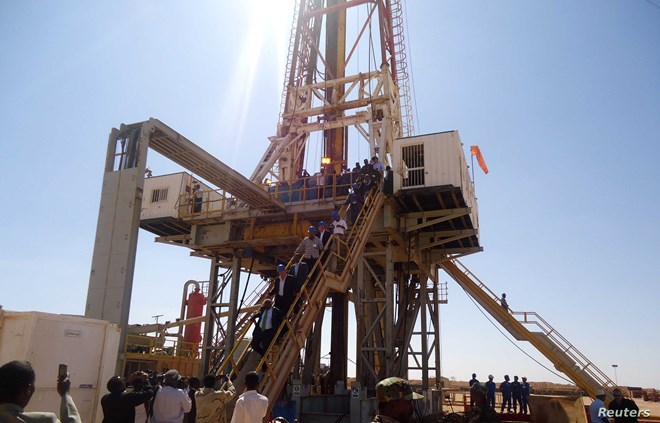
Sunday August 2, 2020
By Alastair O’Dell, Gordon Feller
Somali Petroleum Authority board has been approved by the Mogadishu government ahead of licensing round

Somalia’s cabinet approved the board members of the Somali Petroleum Authority (SPA) on 30 July, passing a significant milestone as the Ministry of Petroleum and Mineral Resources prepares to launch its first licensing round on 4 August.
The appointment of Ibrahim Ali Hussein as the SPA’s first chairman and CEO is not a surprise. He has been the senior economic advisor to The Ministry of Petroleum and Mineral Resources since November 2014, where he developed the regulatory and commercial framework for the oil and gas industry.
Petroleum Economist reported the ratification of The Petroleum Law on 8 February 2020 that provided for the SPA to be the government authority to regulate the development of the industry. It is designed to apply the principles of equality, openness, accountability, transparency and non-discrimination in the interests of all the Somali people, according to the ministry.
The most promising areas seem to be offshore, in areas which are either in deepwater or ultra-deepwater. Technology advances have made the deep and ultra-deepwater areas technologically feasible for exploration and production. In 2014 the government divided up the entire country (onshore and offshore, up to the 200 (nautical) mile EEZ boundary) into 25,000km2 license blocks.
There are no producing fields at present, nor were there before the 1991 civil war. Offshore exploration data acquired between 2012 and 2016 has attracted interest from several industry players. It was only on March 5 this year that Somalia’s government cleared its arrears to the International Development Association, thereby completing the process of normalising its financial relationship with the World Bank Group.
Industry development
The central component of the country’s preparations for the potential arrival of hydrocarbons wealth was the Petroleum Ownership Management and Revenue Sharing Agreement between the federal government and member states. Crucially, it balances the interests of the six member states with the aim of establishing a durable, equitable agreement in a country that has been blighted by devastating civil war that has only more recently given way to peace.
“The establishment of the SPA is one of the first critical milestones of the implementation of the Petroleum Law,” says minister Abdirashid Mohamed Ahmed. “The authority comes into existence when the country is commencing its first exploration activities. The ministry and the SPA will work hand in hand… to achieve the government’s vision towards the development of oil and gas sector of the country.”
Somalia reached an agreement with a Shell-ExxonMobil joint venture on 24 February that covers future exploration of historic offshore oil and gas blocks. The agreement enables concessions held by the joint venture to be converted into a new agreement. The joint venture made a $1.7mn payment to Somalia last October as retrospective rent for five blocks it was awarded three decades ago under former president Mohamed Siad Barre; the blocks were never accessed due to the vicious civil conflicts that erupted following Barre’s overthrow in 1991.
The midstream and downstream sector is functional in a limited respect: Somalia imports refined petrol and diesel and distributes it via two medium sized storage facilities in Mogadishu. There is a partially regulated and taxed commercial sector within the city limits. Somali currently has no oil refinery or heavy industry.
Outside Mogadishu, the fuel distribution system seems to be far more unregulated. There does not appear to be a fuel shortage in the economy and, except during the drought season, prices do not fluctuate unduly. Most recorded deliveries of refined product come from the Gulf States via coastal fuel tankers and are distributed from the tank farms by road tanker. There are no overland fuel pipelines in operation inside Somalia.
Equitable distribution
The basic principles of the agreement are designed to ensure equitable investment in development across the whole country while recognising the differing requirements in regions that will be closely involved in production.
“I am deeply honoured to be appointed,” says Hussein on the announcement. “Our objective is to ensure that the fiscal and regulatory regime is internationally competitive to attract investment, while delivering an equitable proportion of any future revenues to the Somali people. We have been encouraged by the level of interest being expressed in our first forthcoming licensing round opening next week.”
Half of the Somali population is poor, with poverty concentrated in refugee settlements. Poverty is a pressing humanitarian issue, with food insecurity prevalent for a sizable proportion of the population. This reflects the legacy of violent conflict but is increasingly overlaid with vulnerability to climate shocks whose impact is in turn exacerbated by lack of investment. Approximately 6.2mn people across Somalia are estimated to be food insecure through June 2017, of which nearly 3mn need emergency assistance.
Despite the country’s fragility, Somalia has remained on a positive trajectory following the August 2012 and February 2017 peaceful transfers of power. Somalia has made significant strides in the last few years. Security has improved, state formation has progressed and Somalia is normalising its relations with international financial institutions—and especially the World Bank, the European Investment Bank and the African Development Bank. In fact, Somalia has drafted its first National Development Plan in 30 years, articulating its priorities for the coming period.
The country also faces a significant threat from a recent locust invasion and Covid-19. The Ministry of Agriculture declared a national emergency on 2 February following a locust invasion, which threatens food security. FAO put out a $76mn appeal to fund the spraying of the affected areas with biopesticides. Spraying commenced in February, but was disrupted due to Covid-19 related restrictions.